If there’s one thing the pandemic has taught all of us, it’s that providing access to food is the most essential of essential services.
It’s taught us many other lessons too, from the dangerous work conditions that migrant farm workers and meat-packing employees face to the importance of supporting the producers, markets, restaurants and frontline grocery store workers that keep us healthy and fed when we unexpectedly find ourselves stuck in our neighbourhoods for months on end.
For all the problems we’ve witnessed with supply chains and service closures, British Columbians have responded with enthusiasm for local food. Demand for Community Supported Agriculture boxes and garden plots went through the roof in the Lower Mainland; everyone from chefs to farmers learned new online systems for arranging orders, pickups and local deliveries; and First Nations demonstrated the role Indigenous food sovereignty plays in the fight against colonialism.
With many more threats to food security on the horizon, we need to take this wake-up call seriously, say representatives on all sides of the dinner plate, from field to fork.
“I think we need to view this current crisis as a fire drill,” said local food systems advocate Michael Ableman, who picked up the phone after a long day of work at Foxglove, his family farm on Salt Spring Island. “We just had a momentary glimpse into the possibility that things were going to shut down when, here in Canada, the trucks kept rolling, the planes were shipping, and the boats were still moving stuff around.”
But Ableman said he’s confronted the reality of a shutdown in a way he’s never had to before, despite decades of consideration. “It’s the physical experience of something versus the thinking about it, or the writing or reading about, that makes it so real.”
Ableman and other local food experts reflect on powerful lessons from the pandemic, some of them echoes of ideas from the 100-Mile Diet by J.B. MacKinnon and Alisa Smith launched in The Tyee in 2005. When the next COVID or climate disaster rolls around, let’s hope we listened.
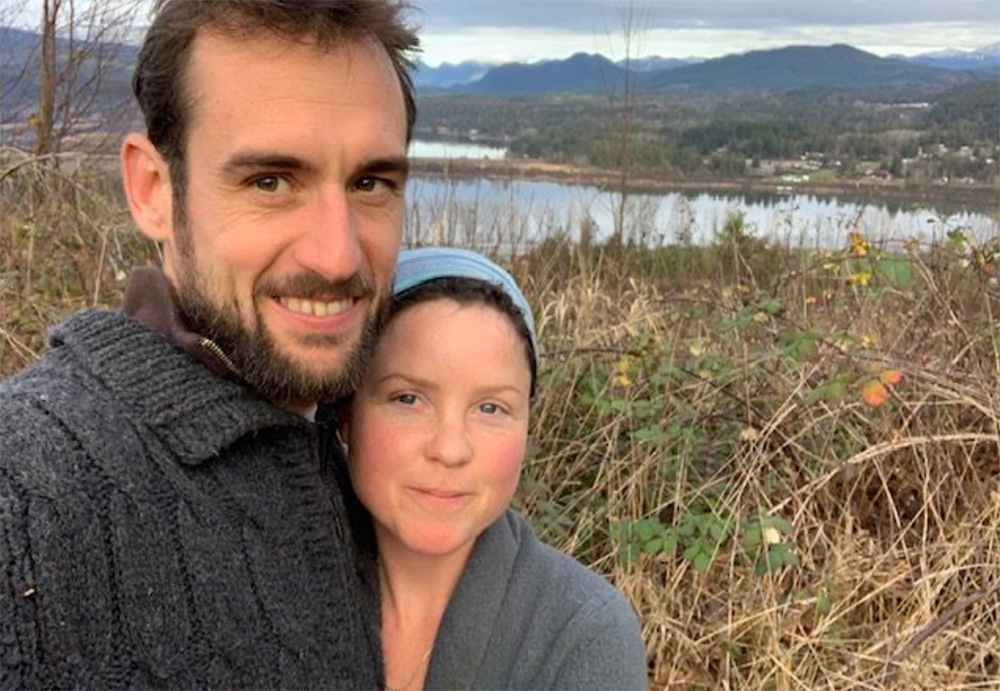
SHIRLENE CÔTÉ
Farmer and co-owner of Earth Apple Organic Farm
James and Alisa’s reflections on their 100-Mile Diet strongly influenced my decision to begin farming. That and learning that the average farmer is retirement age or older. Soon I became so consumed in the farming life that I didn’t have time to think about my role in local food security. Occasionally, I would feel disgruntled by how much commitment and sacrifice was required to earn such little pay, and then I’d get home, unload, and find out there were chickens on the loose or a leak had sprung. I guess the ethical choice I made in the beginning is still a small flame fuelling my drive.
When COVID hit the country, I had a renewed sense of concern about our food system. Farmers in my circle were discussing whether our usual ways of distributing and marketing products would be possible. We were uncertain about whether farmers markets would be deemed essential. Small farms that cater to restaurants were scrambling to change their plans. All of a sudden, we were reaching out to wholesalers for the first time.
It became clear that many of us are in the industry for moral reasons, especially when a panicking population was reaching out to secure their share of food for a season. We didn’t hike prices up or take advantage of a suddenly vulnerable local community. Instead, we tried to deter people from panic buying. We also decided to expand our Community Shared Agriculture program [packaging locally farmed food for delivery to subscribers], thinking it would be the most direct way to get food to our customers. We saw new people interested, people who had very little knowledge about how a CSA runs or why someone would sign up for one without an impending crisis.
Although small-scale farming has never made a lot of money, at least in the past there was land ownership that made it more worthwhile. With land prices what they are now, there is little incentive for families to continue farming when they can sell off land for a more lucrative career. We are land shareholders, along with 50 other people, at Glen Valley Organic Farm Co-op in Abbotsford, which has committed this land to farming in perpetuity. It’s an innovative model formed 20 years ago by a bunch of forward-looking philanthropic folks who wanted to ensure that farmers have land, and that land is farmed. Shareholders — with the exception of two farm businesses — are mostly hands off, do not live on the land, and do not accrue interest in ownership of the land. If they want to sell their share back, it has the same value as it did 20 years ago.
COVID made me realize the importance of the farmer-consumer relationship, but also the need to grow more food that reaches mainstream supply chains. That means more financial support. Our farmers both local and foreign need to be better respected and compensated for the many sacrifices they make to continue farming in this country. It’s occurred to me how essential we farmers are, yet we don’t receive the recognition or support we deserve. There need to be more bold and innovative policy measures to ensure that farmers have access to land, and incentives to farm.
HAROLD STEVES
Farmer and former Richmond city councillor
People are realizing that we only have three days of food supply in Vancouver. We’ve concentrated on the factory farms and the large farms for too long when our production, for years, was always the small farmers. I think that’s coming back and we have to promote it. In total we produce half of the vegetables and small fruit we produced when we brought in the Agricultural Land Reserve in 1973. At that time we produced 86 per cent of our vegetables and small fruit. Now it is less than 43 per cent.
ANITA GEORGY
Executive director of FarmFolk CityFolk, an original supporter of the 100-Mile Diet
The pandemic has unveiled threats to our food system such as the shutdown of some meat-processing facilities, threats to the flow of goods across political borders, and access to local seeds — a wake-up call that we need to have resilient, local food systems with short supply chains more than ever before. Climate change is an issue that hasn't gone away. We could see more food system disruptions due to extreme weather.

LAURA SMIT
Interim director of Vancouver Farmers Markets
The pandemic has reminded us that food is essential. Thankfully, there’s no shortage of local food this season. Farmers are planting and producing as they would in any other year, and market stalls are filling up with an abundance of fresh fruits and vegetables. Buying direct from B.C. producers is one of the most impactful ways we can support our local food economy.
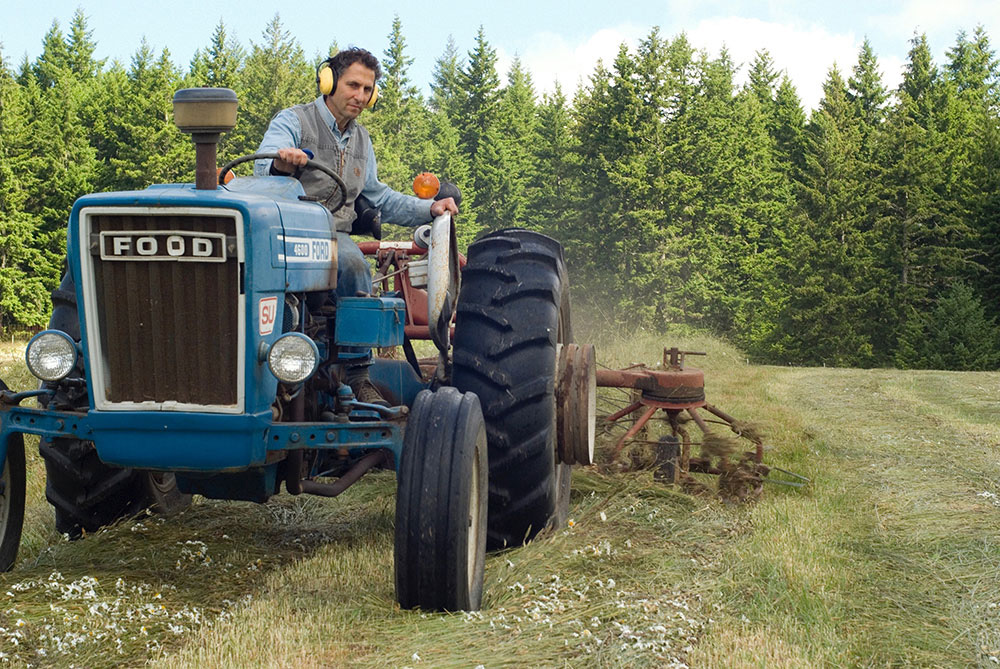
MICHAEL ABLEMAN
Farmer, author, founder of Sole Food Street Farms, local food systems advocate
Every spring for the last 43 years I have followed the same routine.
I turn under green manure crops, spread compost, prepare fields, and direct seed and transplant. The seeds and small plants that go into the ground are the product of months and sometimes years of propagation work. The compost is made throughout the prior season, and the complex crop rotation and field plans are the result of a winter of careful thinking and consideration. The soils are built and improved over decades. Before the first seed gets planted, many months and thousands of dollars have already been invested into a professional endeavour that requires decades to develop and perfect.
This spring was different. I went through all the same motions as I always have, but this time for the first time, I had no idea how the results of my labour, the food that would surely ripen, would make it into the homes and the bellies of all those on Salt Spring Island and beyond that we have supplied for the last 20 years. I am not alone; every farmer everywhere has been struggling with the same concerns.
The Saturday market is temporarily closed, and many restaurants on the island and in Victoria and Vancouver that we sell to are still shuttered. I support every and any effort to stem the spread of this disease, but as the weeks progress there will be more food to harvest and people who need it. Is it not safer, with strict protocols in place, to purchase food directly from local farms in an outdoor space, than food from inside a store that has travelled long distances and been handled by many anonymous hands?
None of us knows for sure how long this crisis will last, but we do know we all have to eat, and now more than ever we all need to eat well.
It may be that the current crisis is providing us with an opportunity to create a food system that truly reflects who we are, where we live, and the reality that we may no longer be able to rely on the industrial food system that still supplies the majority of our food. We live on an island. We are now being asked to think like one.
The financial impacts of this crisis will go on long after the disease has diminished. This year there may be more members of our community who simply cannot afford to access fresh food. The responsibility for this, for making sure that everyone has a place at the table, belongs to all of us, not just the tiny percentage of our population we call farmers. This too can be an opportunity.
Each morning I walk my fields observing, making lists, checking newly planted crops. These walks reveal new leaves unfurling, soil lifting and cracking to expose green pea knuckles, flower jackets slipping off freshly formed fuzzy apple babies, small fleeting gifts like drops of dew on taut squeaky cabbages reflecting the light of the world. But my heart and mind are also consumed by the suffering I see around me, by the internal collision between our human dilemma and the audible sigh of relief I can hear from our Mother Earth as the world pauses, and the constant assault, extraction and pollution, the grabbing and grasping, have been forced to just stop.
We may feel paralyzed when faced with the enormity of our modern dilemma, but we have enormous power in and around the places where we live. This is our time to come back home, to support all those who are re-imagining and replanting our island — one seed, one farm, one meal, one individual at a time. (Drawn from “Thinking Like an Island,” originally published in the Gulf Islands’ Driftwood newspaper.)
NATALIE DROLET
Executive director and staff lawyer with the Migrant Workers' Centre
The COVID-19 pandemic has revealed the extent to which our society depends on temporary foreign workers to grow our food and even to make sure that food reaches our shelves. This is the time when the government should get more involved and do everything they can to ensure workers are protected at work.
HEATHER O’HARA
Executive director of the BC Association of Farmers' Markets
I think what COVID forced people to do is reflect on the impact of local businesses of all kinds, from farmers to processors in the food system to their dry cleaner, their hairdresser, their mechanic, and the impact this pandemic has on that local community. I think being stuck in our neighbourhood shows how important it is.
KENT MULLINIX
Director of the Institute for Sustainable Food Systems at Kwantlen Polytechnic University
The B.C. government is investing nearly nothing in the creation of a truly sustainable food system in my opinion. Rather it seeks to prop up a failing, unsustainable system. The Canadian government is essentially doing the same. It is hugely disappointing to me that our leadership continues to hang their hats on the notion that further industrialization and globalization is what is called for. They remain fixated on economic growth (benefiting fewer and fewer) and the delusion that such will result in sustainability.
The change that needs to be made is simple. Focus on and make significant investment — financial, educational, policy — in the advancement of regional food systems, predicated on regenerative, community-focused agriculture, and scale appropriate post-production infrastructure and business development.
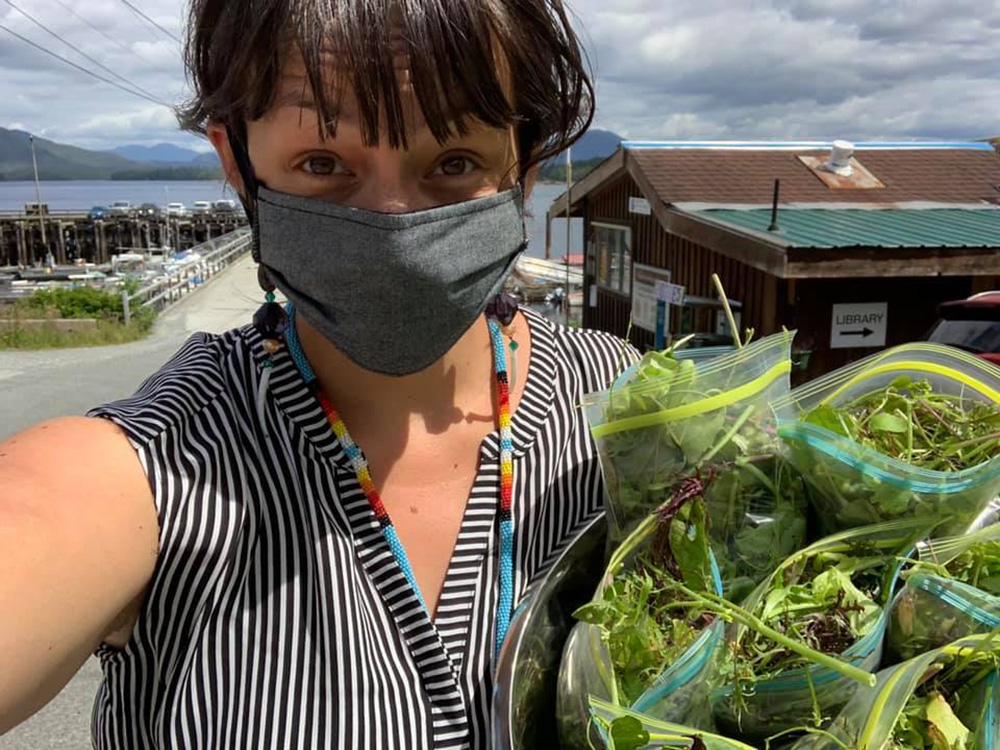
JESS HOUSTY
Heiltsuk Nation tribal councillor
I was struck with the realization of how many crises our ancestors lived through — floods, famine, disease, and every colonial assault on our well-being since contact. But no matter what came, our people kept one another fed. And that community wisdom, deep knowledge of local systems, and commitment to mutual aid is what has driven my COVID response programming.
In Bella Bella, we are reliant on groceries shipped in by freight for a large proportion of our community’s needs. The context of a pandemic makes those supply chains feel tenuous. Building food systems resilience at a community scale but also at a household and family scale reinforces our safety net and has positive implications beyond the nutritional value of what we grow: it builds community, supports our physical and mental health, and reflects ancestral values that are key to our Heiltsuk identity.
Our non-profit, Qqs Projects Society, has been operating land-based youth and family programs, including community gardens, since 2013. When the pandemic began to unfold, we felt challenged to find new, COVID-safe ways to meet emerging needs. This led to a new iteration of our food security programming that we called Granny Gardens. We resourced households with planter boxes, soil and seeds to start gardens at home and have something positive to focus on in the new reality of self-isolation. We shifted instruction from our normal group workshops to social media and FM radio.
In a normal year, we might have a couple dozen gardeners attending workshops or volunteering in our community garden. With the Granny Garden model, we’ve provided resources to over 80 households. We built a greenhouse so we could mass start seeds to give away plants to our participants. We adapted our community garden to support physically-distant student gardening with a team of Heiltsuk youth each championing a different space to grow food for disbursement to those who can’t garden themselves. The inspiration for our food systems work came long before the pandemic, but COVID catalyzed a transformation that has proven to be hugely important and successful.
As a nation, the focus has always been deeper than putting food on our plates and having resources to trade. We have thousands of years of stewardship history that’s built on our reciprocal relationship with our homelands, and I’ve seen my people make bold and sustainable decisions to put the long-term health of food resources first. We had a good herring run this year, which is thanks in no small part to the warriors who fought for a moratorium and an end to the commercial fishery in our waters. I’ve seen Heiltsuk people dedicate their whole working lives to protecting and enhancing salmon populations. That deep commitment to sustain what sustains us, to care for the lands and waters that care for us, is ingrained in who we are as Heiltsuk people.
RICHARD BULLOCK
Retired orchardist and former chair of the Agricultural Land Commission
We've got to produce more and more of the stuff here on our own, and use this land to the best of its ability. The most important commodity that the world needs is food to feed its people and its creatures. That land should be sacrosanct.
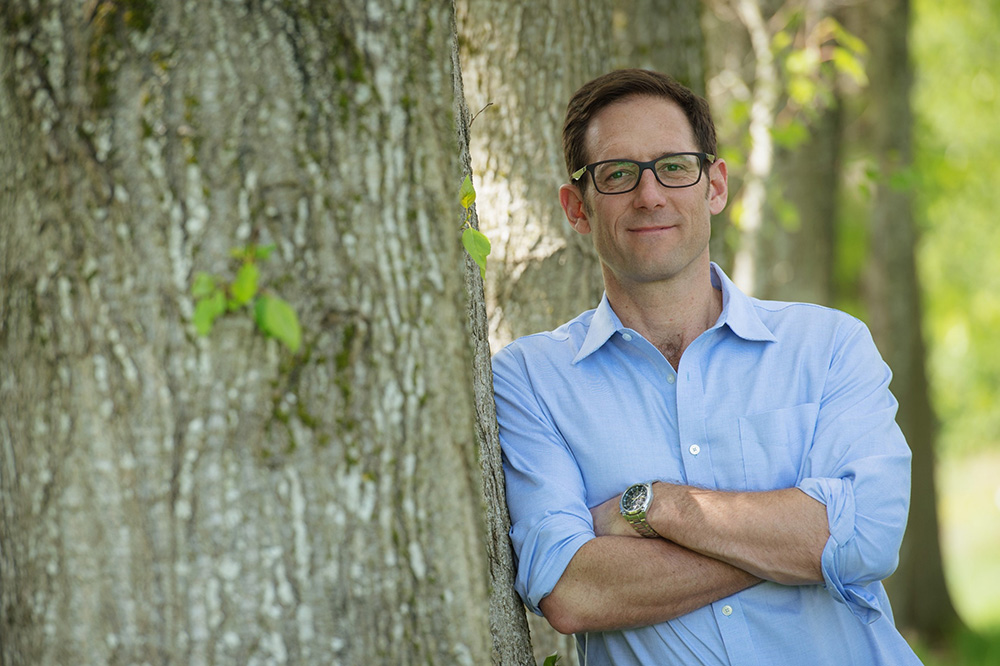
SEAN SMUKLER
Chair of agriculture and environment, UBC Faculty of Land and Food Systems
I think when people went into grocery stores and saw empty shelves, it was a big wake-up call. Most of us have never experienced that in our lifetime. It was a feeling of not being in control of the most essential component of our life beyond water. I think that probably scared some people. It makes us think, well, what are the alternatives? How do we control this essential service?
Luckily, imports kept coming in, so it was mostly a perceived scarcity, but it was a good practice run for some of the shocks to our food system that we’re likely to see in the future due to climate change. Slow-moving disasters are that much harder to plan for and mobilize around than something as urgent as COVID-19. What COVID did was help us identify a bunch of fragile points in our food system that we can shore up. The next time around, we’ll probably fare a lot better.
The one that I was really surprised about was the labour force. Our reliance on a migrant labour force always seemed problematic, but I never thought of it in this way, that maybe we won’t have people to actually grow our food. The other one was just how the choices in the way we eat food impacts what farmers can sell. That seems like an obvious thing to say, but when people stop eating french fries and onion rings, to see farmers not be able to have a market for potatoes and onions — which are basically only consumed in quantity — just seemed crazy.
We used to have a lot more processing in B.C. Think about our meat production. We raise a whole bunch of cattle here in B.C. and then it goes to Alberta just to be slaughtered and finished before getting shipped back to us so we can eat it. It seems sort of silly, but so do provincial and national borders. Here in the Fraser Valley, we have this international border that runs almost down the middle, separating food systems. Whereas really, the water and the nutrients, they’re all connected. So, thinking about how do we bio-regionalize food production and the way we move food from place to place.
And by re-regionalizing our food production, we have a better say as to how food gets produced. If something bad is happening in someone else’s backyard, we don’t really care so much. If it’s in our own yard, that’s when we start to worry about our soil, our farmers.
I’m hopeful that, in the end, this event will be a catalyst to a lot of change, like we see happening with the Black Lives Matter movement. They’re not directly connected but there’s a connection, and there’s going to be some serious change.
DAWN MORRISON
Founder of the Working Group on Indigenous Food Sovereignty and member of the Secwepemc Nation
We’re really needing to look at some innovative solutions and bring the oldest living memory of what it means to live sustainably on the land and bring that into this new present-day reality.
Next in this series: Ace chef Andrea Carlson put the 100-Mile Diet on Vancouver restaurant menus. Will the pandemic put her out of business? ![]()
Read more: Food, Coronavirus



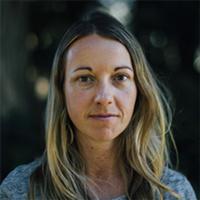

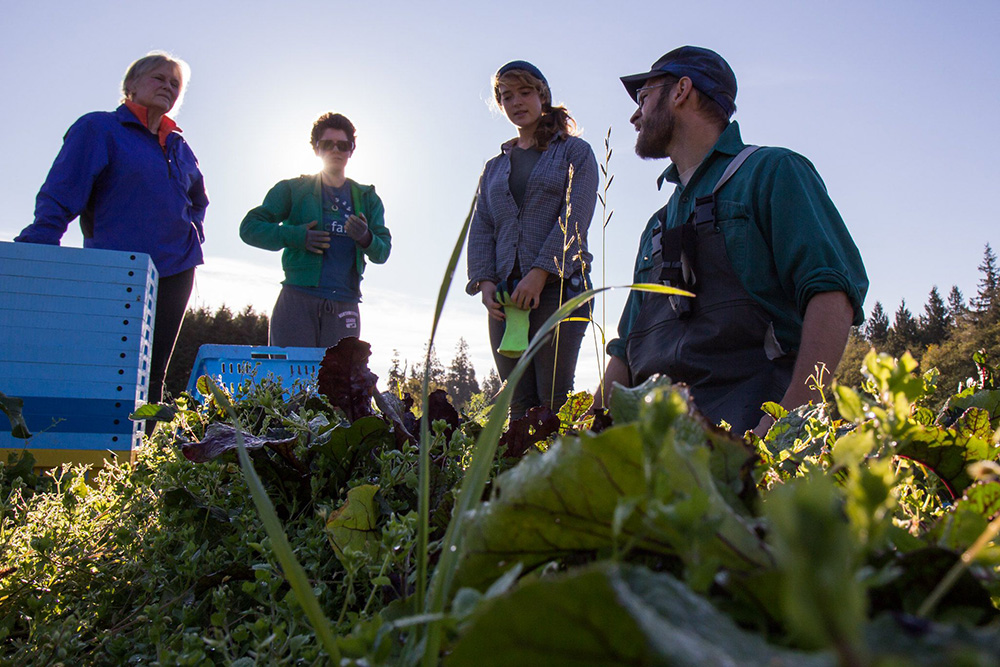












Tyee Commenting Guidelines
Comments that violate guidelines risk being deleted, and violations may result in a temporary or permanent user ban. Maintain the spirit of good conversation to stay in the discussion.
*Please note The Tyee is not a forum for spreading misinformation about COVID-19, denying its existence or minimizing its risk to public health.
Do:
Do not: